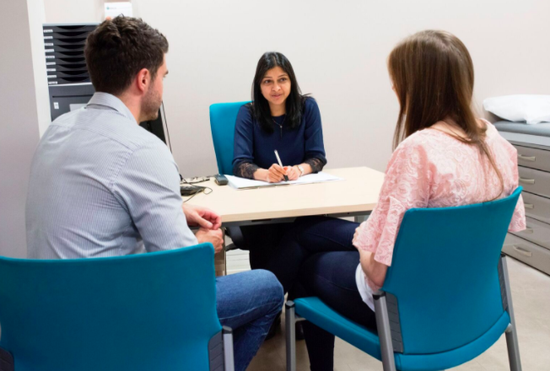Menstrual cycle problems are a common cause of infertility for many women. Irregular periods are when you have a sustained, long-term pattern over several months of different lengths of cycle, as all women will usually have one or two irregular cycles occasionally.
A difference of only a few days isn’t generally considered irregular, but if you notice wide variations from month-to-month, it’s likely you have an irregular cycle.
So if you have irregular periods, will this prevent you from getting pregnant? Although it will make getting pregnant more difficult, it doesn’t mean you won’t be able to. The main thing is to find out if there is an underlying cause, for example irregular periods can often be a sign that you’re not ovulating.
Other causes can be conditions such as Polycystic Ovarian Syndrome (PCOS) or a hormone imbalance, where you still ovulate but the day on which you ovulate varies greatly. Other factors which can affect your cycles include your diet, extreme exercise, or being significantly underweight or overweight.
The first thing to do if you think you have irregular cycles, even if you’re not planning a pregnancy yet, is to see your GP. They will conduct a series of simple tests to find out whether you’re ovulating or not.
If you are, then ovulation prediction kits can help you to chart your fertile window. If you’re not ovulating, then your GP may refer you for treatment with a clinic such as Manchester Fertility.
Your treatment options include the use of fertility drugs to boost your cycle and help you ovulate more regularly. You can then try and get pregnant on your own, or use assisted reproduction such as IVF.
At Manchester Fertility we also offer a ‘Fertility MOT’ test, which is a thorough investigation that can help identify any fertility problems in advance of you trying for a baby.
So don’t be afraid to seek help if you think you need it – the sooner any problems get diagnosed, the better your chances of success.
For more information about our treatments and tests, visit our Treatments page or call us on 0161 300 2737.
Last updated: 20th January 2020





